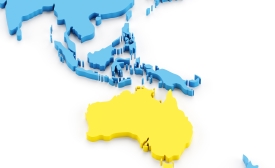australia
Australian animals have long been dispatched internationally as a form of diplomacy. In the past two years however, it has been koalas, rather than the platypi, who have shot to international notice as key Australian contenders in political power plays.
“When MasterChef kicked off here in India, there were some racial issues with people getting beaten up, taxi drivers and all the rest of it,” Mehigan said while signing plates. [...] when MasterChef started, it all turned around. It’s what embassy people call “soft diplomacy”...
When the Chinese government donated a library to the University of Technology Sydney few people noticed. Only slightly more seemed to care when groups friendly to Beijing began funding think tanks in Australia, making political donations and paying primary schools to run Chinese language programs.
British, American and Australians members of the Friendship Force International (FF) enjoyed a weeklong homestay in Korea as part of a program to promote intercultural ties. During their visit, members of the international cultural exchange program visited the Demilitarized Zone (DMZ), Gyeongbok Palace, the Korean Folk Village...
China Daily's deputy editor-in-chief Kang Bing said Fairfax Media's presence in both Australia and New Zealand "means the influence of China Daily will be spread to cover the two most important countries in Oceania", adding that China's "soft power could drive the wheel of its friendship with Australia and New Zealand", according to quotes carried by the Chinese newspaper.
When the United States or any other Western country embraces a “pivot to Asia” as a central element of its foreign policy, it must be more than a “pivot to China.” Nations such as South Korea, Indonesia, Singapore, the Philippines, Malaysia, Australia, New Zealand, Vietnam and others all keep a close eye on China, but they also know that they individually and especially collectively possess enough economic and political vitality to offset some of China’s regional dominance.
March 2015, an Australian researcher published a statistic that drew both laughs and gasps in the business community there: Fewer large Australian companies were run by women than by men named Peter. The damning statistic prompted some introspection in the Australian film industry in particular, where women represent 17% of directors, a number that hasn’t budged since 1970.

Reflections on soft power in the Pacific.







